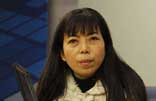Geniuses should be carefully nurtured
Updated: 2012-02-01 08:01
By Berlin Fang (China Daily)
|
|||||||||||
Han Han, the iconic young Chinese writer, is again the center of attention in China after doubts were raised about the authenticity of his writing. It started when Mai Tian, a former senior manager of Baidu - China's largest search engine - raised the suspicion that Han's father and one of his publishers Lu Jinbo might be ghostwriting Han's words. Mai later apologized for the accusation, but the debate has taken on a life of its own, especially after professional whistleblower Fang Zhouzi joined in. The alleged ghostwriters have denied the accusation and Han reacted by promising 20 million yuan ($3.16 million) to anyone who could provide evidence that someone was writing in his stead. Actress Fan Bingbing increased the bounty by another 20 million yuan.
But is Han's writing really that great to warrant all the fuss? I tend to agree with those who claim only great writers like Shakespeare are worthy of the suspicion that their works were written by someone else. As far as Han is concerned, I don't think a ghostwriter is writing for him. A cost-benefit analysis doesn't support hiding behind someone to produce works of youthful, though steadily improving, writing. Ghostwriting also takes talent and effort.
Mai also claimed Han would not be able to post so many blogs as he was always racing cars. But when I reviewed my own blog, I found that I am at least two or three times as prolific as Han while still maintaining a day job, writing columns for newspapers, raising two kids, doing household chores, translating novels and often serving as a volunteer. And I have the disadvantage of being 40 years old.
I don't always agree with Han, but I enjoy reading his posts. He is agile, adapting his style and is capable of producing one phenomenon after another. At the moment, perhaps his talent lies more in marketing than in writing. But we probably haven't seen the best of him yet.
Much of the ghostwriting controversy hinges on the presence of natural genius in him. For instance, one point of contention is the spontaneity of the article that made his name, "Humanity in a Glass". At stake in this argument is the truthfulness of Han's natural talent in producing the piece for a competition in the short time allocated to him. In China, we seem to idolize prodigies who can produce great works of art in 10 minutes. Or seven steps in the case of the poet Cao Zhi (AD 192-232) who, in response to a challenge by his jealous brother, Prince Cao Pi (AD 187-226), produced a touching poem lamenting the evils of sibling rivalry before he had finished walking seven steps. For writers, quick wit isn't nearly as essential as we make it sound. Good writing takes time, writing and rewriting, and good editing can also work wonders on an otherwise mediocre piece. Good writers do not just sit there and wait for inspiration. The knowledge required for their writing often resides not in their heads, but in the world, to be acquired or utilized. Skills can be developed and improved. Great writers are hard workers.
The world is littered with people who wish they had talent, but the peaks are scaled by those who though they have ordinary talent make extraordinary efforts.
So stop such hooey about Han's natural genius. Not everyone is lucky enough to be born with an intellectual silver spoon, but most people can make improvements with conscientious effort. Han sets a good example. He thinks for himself. He reads much and often. He has acknowledged the immaturity of his earlier works.
We should follow the example of Han's father who, while the rest of his peers tried to twist and bend their kids to suit the needs of tests, nourished Han's talent and eventually enabled Han to be the phenomenon he is today. Such nurturing is probably much more worthy of our attention than trying to spot natural genius.
The author is a US-based instructional designer, literary translator and columnist writing on cross-cultural issues.
(China Daily 02/01/2012 page8)




